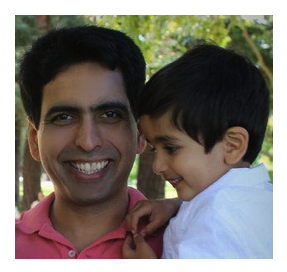 |
A football match breaks out between British and German
soldiers on the Western Front as they abandon their
trenches. [World War I, 24 December, 1914]
|
 |
An American soldier holds the hand of a young
Afghan girl. [Afghanistan War, 2010]
|
In WWI, emperors and dictators sent their armies to conquer new lands, to expand their empires. Soldiers were told it was right and just to do so. Ten million soldiers died along with six million civilians.
 |
A German soldier shares his rations with a Russian
mother and her child. [World War II, c. 1941]
|
Nazi propaganda justified invasion on the pretext of 'protecting' German ethnic minorities in other countries. Sixty+ million died in the war that followed, half of whom were soldiers. Ten countries lost millions each. Eighteen more lost hundreds of thousands.
German civilians and regular soldiers in the field didn't know the details of the 'final solution', but became progressively more aware as deliberate 'desensitization' was managed through the national media. Afterwards, being brought to the reality was a horror from which many could not recover.
U.S. General Walton Walker began the practice of bringing German civilians to the concentration camps after they were liberated. He ordered the mayor of Ohrdruf and his wife to visit the Ohrdruf labor camp discovered by American troops in 1945. After their visit, the Mayor and his wife returned home and killed themselves.
 |
An East German soldier ignores orders
to let no one pass and helps a boy
found separated from his family by the newly formed 'Berlin Wall'. [Cold War, 1961] |
 |
A soldier runs from the battlefield with Vietnamese
children in his arms. [Vietnam War, 1955 - 75] |
As it turns out, most folks are reasonable and want to do the right thing.
Farther up on the power-pyramid, what is it that rots the soul? What is it that converts reasonable intent to unreasonable actions? Alongside power and wealth we note a lack of moral restraint, or perhaps fear and a deeply broken mind. Depravity such as we've seen is not a single decision, but an extended decline from right thinking. From the power-mongers to Wall Street (but I repeat myself), it's the same problem.
 |
Christians protect Muslims as they pray during the
Egyptian revolution. [Cairo, Egypt, 2011]
|
Perhaps the sacred duty of leadership is to lead virtuously, to foster in those who follow a right heart and mind. When the accounting comes, each will be responsible for their own actions, but the one who leads others astray will be judged accordingly.
 |
| A soldier chats with a young Iraqi girl while holding his position near Basra's main street as coalition forces take control of Iraq's second city. [Iraq, 2011] |
 |
| CTF 4-2 broadcaster coaches local Afghan children - FEB 2013; they're curious, like kids pretty much everywhere, and you've just got to stop for a minute so they can see. |

.jpg)



.png&container=blogger&gadget=a&rewriteMime=image%2F*)








.jpg)


